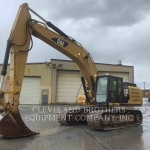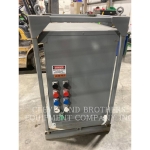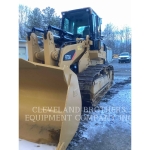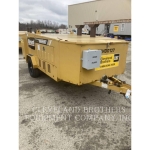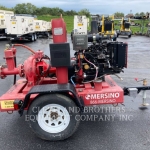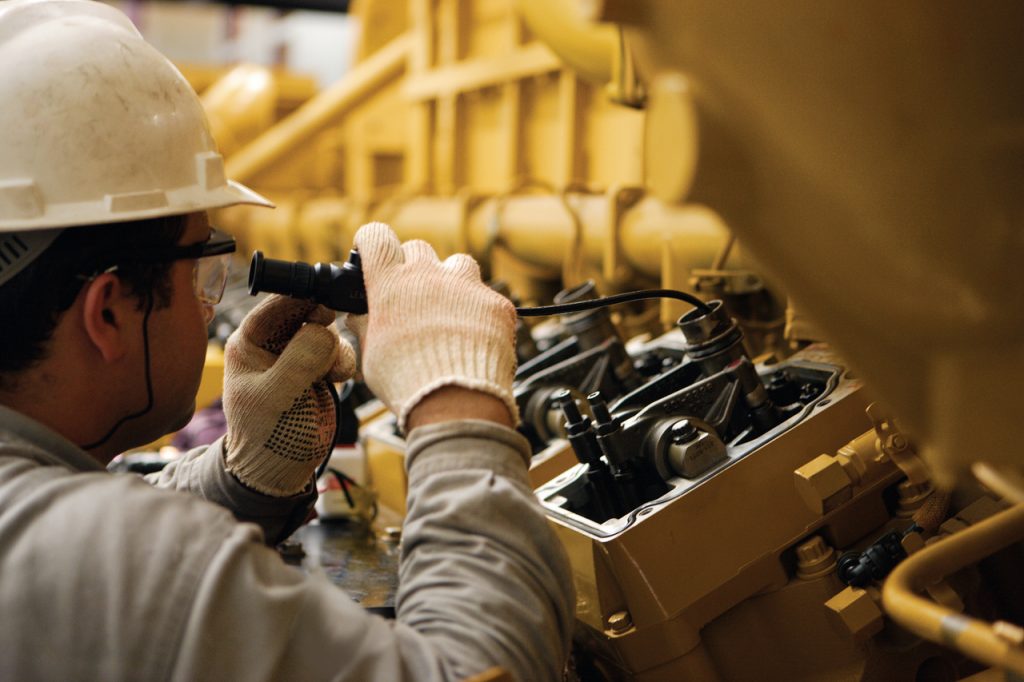What Is Tier 4 Technology?
Tier 4 standards are emission standards created by the California Air Resources Board and the U.S. Environmental Protection Agency (EPA). These standards apply to new engines usedin heavy equipment and off-road machinery used in several industries, including mining, construction and agriculture. Old engines are not affected by Tier 4.
With these new standards, engine emissions have been lowered to reduce the levels of greenhouse gases being released. The goal of this standard is to ensure we all breathe healthier air. Manufacturers have responded with new, cleaner diesel engine systems as well as features to give users more control over gas use. Fuel sipping engines, light materials, hybridization, telematics and other features make modern engines more efficient and allow them to produce less particulate matter.
How Does Tier 4 Work?
The reduction of emissions in the diesel engines of off-road vehicles has been gradual. Tier 3 standards were first introduced in 2006, and Tier 4 Interim standards were put in place from 2008 to 2012. The Tier 4 Final stage began in 2013. At each stage, emissions standards became stricter. The gradual introduction allowed companies and industries to adjust.
New off-road diesel engines will need to meet Tier 4 standards. Today, manufacturers are using exhaust after-treatment parts to make new engines compliant. Still, you will want to confirm before buying new equipment that all the relevant machinery meets Tier 4 regulations. You may end up paying more for compliant engines and the machinery that contains them.
Understanding Tier 4
Tier 4 standards target two exhaust pollutants. The first is particulate matter (PM), which contains soot and other unconsumed hydrocarbons. The second is NOx, a chemical compound made up of nitrogen and oxygen. NOx is the main pollutant in smog.
To cut NOx in particular, engine manufactures began installing selective catalytic reduction (SCR) systems. When exhaust is created in this system, it passes through a diesel particulate filter (DPF) that traps particulate matter. Alternatively, it may pass through filters known as diesel oxidation catalysts (DOCs). The exhaust comes out of the filter and into the catalytic chamber, where it’s sprayed with urea and water. This process turns much of the NOx in the exhaust into nitrogen and water.
The advantage of the SCR process is that it allows engines to run cool. The urea and water solution is inexpensive. Keep in mind, though, that your operations will be disrupted if the solution runs out. The engine needs urea and water to run, so be sure to monitor the levels carefully.
More Tier 4 Changes
The SCR process is just one change that has been made to engines in the construction industry as a result of Tier 4 Final. Manufacturers have rolled out variable geometry turbochargers and twin turbochargers to boost throttle response and fuel combustion. Fuel injection has become very accurate and precise with high-pressure fuel systems and electronic engine control.
These changes mean that your diesel engines will be more fuel-efficient and environmentally friendly, allowing you to potentially save money on fuel while helping to clear the air. Eventually, many off-road machines at your work sites will have Tier 4 engines.
These engines will call for a larger investment upfront and careful maintenance to ensure fluids are topped up and the engines are ready.
When you’re shopping for off-highway vehicles, keep in mind that some engines are exempt from Tier 4. These include engines of less than 24 horsepower as well as engines used in marine vessels and rail locomotives. Hobby engines of less than 50 cubic centimeters and engines used in underground mining equipment are also exempt.
What Comes After Tier 4?
After Tier 4 Final, the EPA may adopt an additional regulation. In 2019, European Stage V standards were implemented to reduce sub-micron levels of soot and particles. If inhaled, these ultra-fine particles can get lodged in the lungs and cause serious illness. Although the EPA has not announced plans for regulations after Tier 4 Final, it is possible that European-style standards will be launched as Tier 5 emissions standards in the U.S. in the future.
To make engines compliant with the strict Tier 5, every diesel engine would need to have exhaust pass through a diesel particulate filter. Under Tier 5, if it occurs, some of the engines which are currently exempt would need to be compliant.
Things to Consider When Buying Tier 4 Engines
Tier 4 diesel engines include different filter systems and new engine components, including bigger radiators and an after-treatment system. All of these factors result in a larger engine than you may be used to. Tier 4 engines also run hotter, meaning heat protection and shielding may be necessary.
Tier 4 engines allow for more control, which means they may have a special display to help you manage and control fluid levels. They may also come with a high-temperature indicator. You might want to consider which engine-specific data you want to see as you shop for new equipment.
Speed and horsepower are key considerations with Tier 4 Final engines. It might be a good idea to buy slightly faster and more powerful engines than you need. When a specific process is required, a Tier 4 engine can begin derating, which will momentarily affect speed and power.
Contact Cleveland Brothers to Learn More About Tier 4 Standards
At Cleveland Brothers, we have a range of Tier 4 engines you can browse. Our Tier 4 engines come in a variety of sizes, horsepower ratings and speeds to meet the needs of your operation. We also offer preventive maintenance and other services to bring you peace of mind. Our commitment to customer service and quality machinery means you can count on us for all your equipment needs. From Tier 4 standards to whatever comes next, we’ve got you covered.
To find out more about our Tier 4 engines or to get guidance on choosing the right one for you, contact us today.
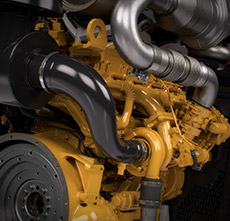
This content is created and reviewed by the Cleveland Brothers team. With vast experience and extensive knowledge, Cleveland Brothers is committed to offering 24/7 support to keep your company up and running. Contact our team today for more information regarding sales, full-service maintenance, engine rebuilds and more.
